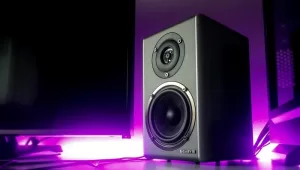New Smart Technology to Help People with Brain Injuries
People who have suffered brain injuries are being asked to help a University of Nottingham research team adapt and test a new assistive technology which is already helping people with autism live more independent lives.
Brain in Hand is an award-winning cloud-based software programme. It can be used on smartphones, tablets or computers and is designed to help users plan their daily activities, appointments and routines. It can also monitor anxiety levels and provides instant access to pre-planned coping strategies and urgent support.
Brain in Hand has now teamed up with clinical psychologists and occupational therapy experts at the University’s School of Medicine to create an adapted version which will help improve the quality of life of people with brain injury. The team wants to recruit acquired brain injury patients from Derby Teaching Hospitals NHS Foundation Trust, Chesterfield Royal Hospital, Headway and the Stroke Association to take part in the research.
The easy-to-use software includes:
- A diary and notes for difficult to remember tasks
- Instant access to pre-planned coping strategies
- A monitor to track anxiety levels
- A ‘Red’ button option for contacting emergency support
- A secure website where users can review their use and identify new issues
Clinical Psychologist and Honorary Professor, Roshan dasNair, from the University’s Division of Rehabilitation and Ageing said: “This is an exciting new venture that brings together experts from industry, academia, and the NHS to develop and evaluate new technologies that can help people who have had a brain injury. What is key for us is that the technology is easily accessible, is user-friendly, and will improve independence and quality of life for people with brain injuries.”
Dr Kate Radford from the University’s Division of Rehabilitation and Ageing said: “We are looking for people between 18 and 65 years old who have been diagnosed with an acquired brain injury (traumatic brain injury or stroke) and have at least one problem as a result of the injury which potentially limits their functional independence. They must also be competent in using a smartphone. We will also involve the patient’s carer and a health care professional involved in their case. The input of patients and carers will be essential in helping us adapt and test this potentially life-changing piece of technology.”
David Fry, Chief Executive Officer, Brain in Hand said: “The experts at The University Nottingham have created a robust study. Brain in Hand is already making a huge impact improving the lives of those with autism and mental health conditions. This research will result in a greater understanding of how our technology can also transform the lives of those with brain injury.”
Funding for this research has been provided by a Hermes Fellowship, Medical Research Council’s Proximity to Discovery fund, and Brain in Hand.
















